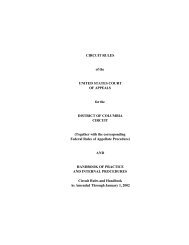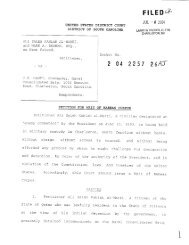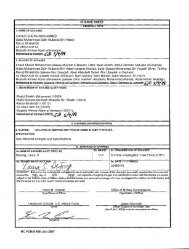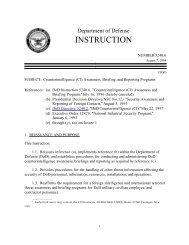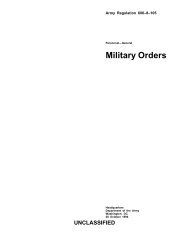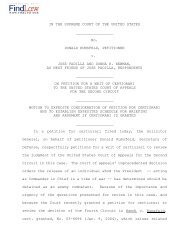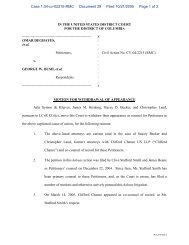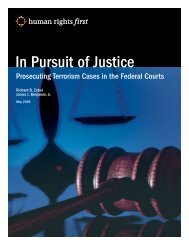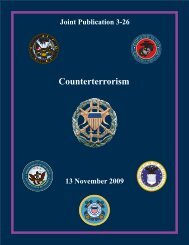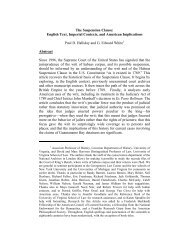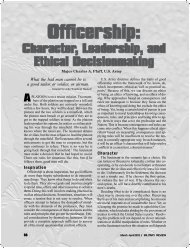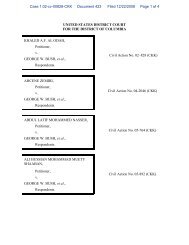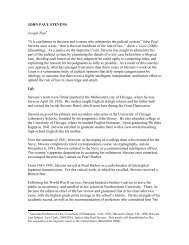Government Merits Brief - Hamdan v. Rumsfeld
Government Merits Brief - Hamdan v. Rumsfeld
Government Merits Brief - Hamdan v. Rumsfeld
Create successful ePaper yourself
Turn your PDF publications into a flip-book with our unique Google optimized e-Paper software.
11<br />
tured in the United States, Ex parte Quirin, 317 U.S. 1<br />
(1942); the Japanese military governor of the Phillippines, In<br />
re Yamashita, 327 U.S. 1 (1946); German nationals who<br />
claimed that they worked for civilian agencies of the German<br />
government in China, Johnson v. Eisentrager, 339 U.S. 763<br />
(1950); and even the wife of an American serviceman posted<br />
in occupied Germany, Madsen v. Kinsella, 343 U.S. 341<br />
(1952).<br />
Facing an enemy today characterized by its systematic<br />
disregard for the law of war and for the lives of innocent civilians,<br />
such as the victims of the September 11 attacks, Congress<br />
authorized the President to use his traditional war powers<br />
“to prevent any future acts of international terrorism<br />
against the United States” by al Qaeda and its supporters.<br />
AUMF § 2(a), 115 Stat. 224. Soon after, and in express reliance<br />
on that authorization and on provisions of the UCMJ, the<br />
President ordered the establishment of military commissions<br />
to try violations of the law of war in the ongoing armed conflict<br />
with al Qaeda. What is more, Congress recently ratified<br />
the President’s decision to convene such military commissions<br />
in the DTA, which establishes an exclusive review mechanism<br />
in the District of Columbia Circuit for challenges to the final<br />
decisions of military commissions. That is self-evidently not<br />
the legislation Congress would have enacted if it viewed the<br />
commissions as ultra vires or defective in ways that demanded<br />
pre-trial correction. The only plausible conclusion is<br />
that Congress has interposed no objection to the President’s<br />
decision to convene military commissions in the current conflict,<br />
including the commission at issue in this case.<br />
Neither petitioner nor his amici have provided any basis<br />
for the Court to disregard the time-honored practice of trying<br />
and punishing captured enemy combatants by military commissions,<br />
as reflected in this Court’s decisions recognizing the<br />
validity of military commissions in prior conflicts and the vari-



